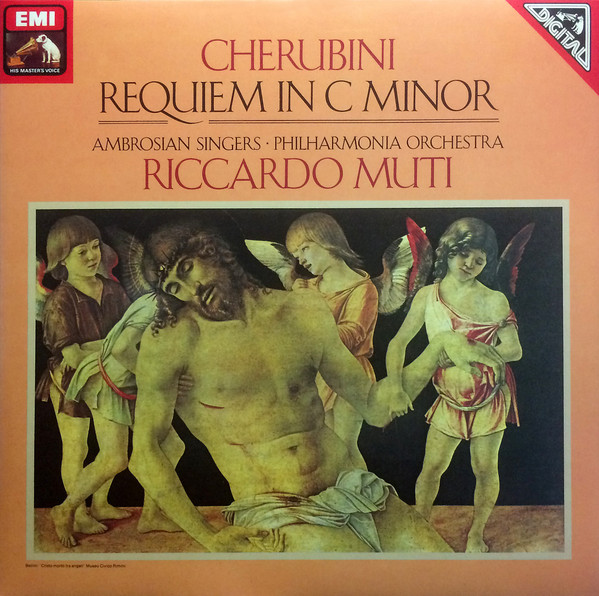Cherubini's First Great Mass
1816 marks the year of Cherubini's Requiem in C minor.
There are a few notable features of the composer's first Requiem setting in comparison with his earlier Masses.
It is relatively compact, with the Dies Irae coming in at a mere 10 minutes, although the Offertory is remarkably longer. In each case, Cherubini makes these portions one musical thought as opposed to many smaller individual sections. Similarly, the combined Sanctus/Benedictus is befuddling brief, although this seems to be the norm for the composer.
More apparent, are the lack of vocal soloists. A composer must be markedly assured for 45-50 minutes of nothing but chorus, and I dare say Cherubini pulls it off. He loses me a bit in the lengthily lyrical Hostias, but makes up for it in the spiritedly fugal Quam Olim Abrahae.
The overall tone of the work is rather devotional, even if the most memorable moment is the strange tam-tam hit at the opening of the Dies Irae. Yet, beauty generally rules the day, especially with the Kyrie, Gradual, and Pie Jesu portions. The Agnus Dei is toweringly powerful, most unusual for a section Cherubini usually approaches as prayerful, or even mournful. The final unison chanting over an extended decrescendo at its conclusion is most effective.
This 1982 recording from Riccardo Muti and the Ambrosian Singers is epically large-scaled. The Philharmonia is a modern-instrument ensemble, and Muti's outlook is grandiose. Still, pacing never flags, and the chorus is remarkably assured, ekeing the most they can from Cherubini's choral writing.
This is the first Cherubini Mass I have covered where there is significant recorded competition to Muti. Shortly before Muti, Heinz Rögner's from 1977 is 10-minutes quicker, featuring his German performers. Perhaps most classic is Arturo Toscanini in decent mono sound from the early 50's, followed shortly by Giulini with Italian performers.
In addition to older recordings, there are a number of more recent period-instrument performances; those by Spering who is rather quick with the music, and Bernius who is more relaxed, but not quite as much as Diego Fasolis on Naxos, although I generally enjoy his choirs very much.
Suffice to say, there are many ways to enjoy Cherubini's first Requiem, but Muti and his British counterparts remain a viable performance and recording.
Work
Requiem in C minorI. Introit & Kyrie (7.18)
II. Graduale (1.42)
III. Dies Irae (10.07)
IV. Offertorium (16.33)
V. Sanctus & Benedictus (1.20)
VI. Pie Jesu (4.49)
VII. Agnus Dei (7.51)
Ensembles
Ambrosian Singers
Philharmonia Orchestra
Riccardo Muti, conductor
Label: EMI
Year: 1982
Total Timing: 48.53
A great choral/orchestral Requiem to become familiar with.
If Muti's grander scaled performance isn't to one's tastes, certainly there are many recordings to find success.
Otherwise, this recording is a great way to experience this music
Find more Cherubini recordings HERE!
Arturo Toscanini
Riccardo Muti, Live




Comments
Post a Comment